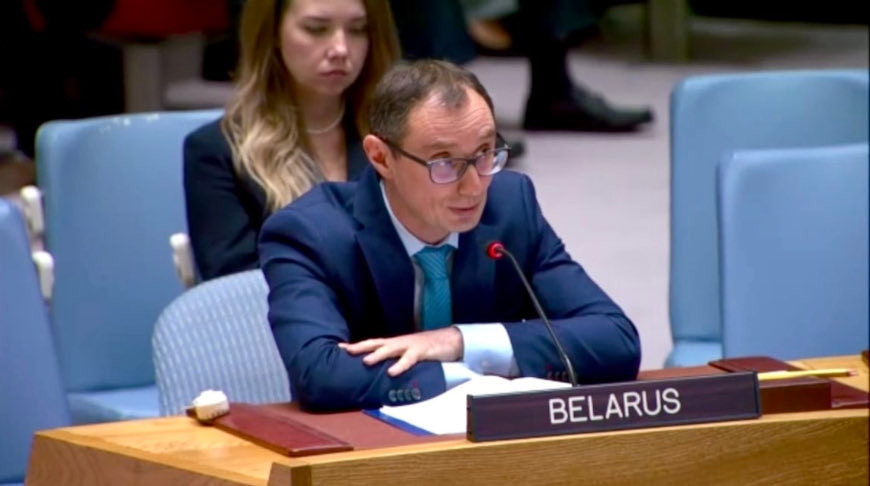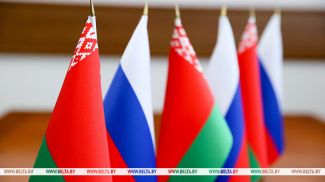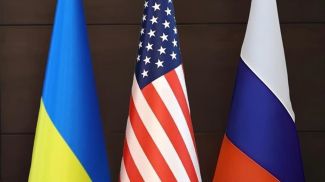
MINSK, 27 November (BelTA) - Belarus will continue to strongly oppose unilateral coercive measures in all their forms and manifestations, calling for their complete abolition in accordance with the UN Charter and principles of international law, Belarus’ Deputy Permanent Representative to the UN Pavel Yevseyenko said at the UN Security Council Arria-Formula Meeting on the topic “The humanitarian impact of unilateral coercive measures”, BelTA learned from the press service of the Belarusian Ministry of Foreign Affairs.
The diplomat recalled that the UN General Assembly resolution of 19 December 2023 “Unilateral economic measures as a means of political and economic coercion against developing countries” contains a clear and unequivocal call to the international community to take urgent and effective measures to exclude the use against developing countries of unilateral economic, financial and trade measures that are not authorized by the relevant United Nations bodies and do not comply with the principles of international law.
Pavel Yevseyenko also pointed out that the UN Secretary-General's report of 4 October 2023, citing data from the Office of the UN High Commissioner for Human Rights as well as the Special Rapporteur on the negative impact of unilateral coercive measures on the enjoyment of human rights, notes that such measures can exacerbate existing social and economic problems and lead to unintended adverse consequences in terms of human rights and sustainable development, can limit access to medical, food and humanitarian assistance.
“Unilateral coercive measures have a significant impact on the social sector of countries affected by them. Although sanctions are often positioned as a means of pressuring a government or political system, their effects go far beyond the economic and political realm. One of the most significant consequences is the deterioration of the quality of life of ordinary citizens, especially in vital areas such as healthcare and food security,” Pavel Yevseyenko said.
He backed up his words with a number of examples. Thus, sanctions directly impede the import of medicines and medical equipment, which has a detrimental impact on the healthcare systems of states. With limited access to modern medicines and medical technologies, the treatment of chronic diseases and high-tech surgeries becomes much more difficult, and the level of healthcare in general decreases.
In addition, under sanctions pressure, the risk of food insecurity increases sharply. Sanctions may lead to higher food prices, reduced supplies and increased shortages of certain goods, including vital goods, which adversely affects the standard of living of the population. Rising prices for basic foodstuffs and reduced availability of quality nutrition are particularly acute for the poor and vulnerable segments of the population.
Education, science and cultural exchanges are also affected by sanctions measures. The closure of international projects, the slowdown of scientific progress, and the loss of access to educational and cultural resources lead to the isolation of citizens and a decline in their overall development. As a result, sanctions, despite their supposed political purpose, often turn into a humanitarian catastrophe, increasing the suffering of ordinary people whose lives, health and future are jeopardized.
“In turn, the effects of sanctions, which generate and exacerbate instability and social insecurity, often escalate into social unrest, hostility, radicalization and political crises, creating a breeding ground for extremism and terrorism. The latter two phenomena pose a direct threat to the sovereignty and security of the state,” the Belarusian deputy permanent representative to the UN said.
“Belarus will continue to resolutely oppose unilateral coercive measures in all their forms and manifestations, calling for their complete abolition in accordance with the UN Charter and the principles of international law,” Pavel Yevseyenko said.
The diplomat recalled that the UN General Assembly resolution of 19 December 2023 “Unilateral economic measures as a means of political and economic coercion against developing countries” contains a clear and unequivocal call to the international community to take urgent and effective measures to exclude the use against developing countries of unilateral economic, financial and trade measures that are not authorized by the relevant United Nations bodies and do not comply with the principles of international law.
Pavel Yevseyenko also pointed out that the UN Secretary-General's report of 4 October 2023, citing data from the Office of the UN High Commissioner for Human Rights as well as the Special Rapporteur on the negative impact of unilateral coercive measures on the enjoyment of human rights, notes that such measures can exacerbate existing social and economic problems and lead to unintended adverse consequences in terms of human rights and sustainable development, can limit access to medical, food and humanitarian assistance.
“Unilateral coercive measures have a significant impact on the social sector of countries affected by them. Although sanctions are often positioned as a means of pressuring a government or political system, their effects go far beyond the economic and political realm. One of the most significant consequences is the deterioration of the quality of life of ordinary citizens, especially in vital areas such as healthcare and food security,” Pavel Yevseyenko said.
He backed up his words with a number of examples. Thus, sanctions directly impede the import of medicines and medical equipment, which has a detrimental impact on the healthcare systems of states. With limited access to modern medicines and medical technologies, the treatment of chronic diseases and high-tech surgeries becomes much more difficult, and the level of healthcare in general decreases.
In addition, under sanctions pressure, the risk of food insecurity increases sharply. Sanctions may lead to higher food prices, reduced supplies and increased shortages of certain goods, including vital goods, which adversely affects the standard of living of the population. Rising prices for basic foodstuffs and reduced availability of quality nutrition are particularly acute for the poor and vulnerable segments of the population.
Education, science and cultural exchanges are also affected by sanctions measures. The closure of international projects, the slowdown of scientific progress, and the loss of access to educational and cultural resources lead to the isolation of citizens and a decline in their overall development. As a result, sanctions, despite their supposed political purpose, often turn into a humanitarian catastrophe, increasing the suffering of ordinary people whose lives, health and future are jeopardized.
“In turn, the effects of sanctions, which generate and exacerbate instability and social insecurity, often escalate into social unrest, hostility, radicalization and political crises, creating a breeding ground for extremism and terrorism. The latter two phenomena pose a direct threat to the sovereignty and security of the state,” the Belarusian deputy permanent representative to the UN said.
“Belarus will continue to resolutely oppose unilateral coercive measures in all their forms and manifestations, calling for their complete abolition in accordance with the UN Charter and the principles of international law,” Pavel Yevseyenko said.













